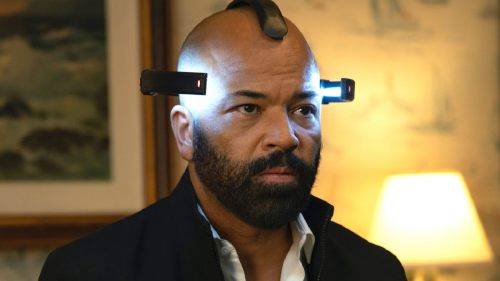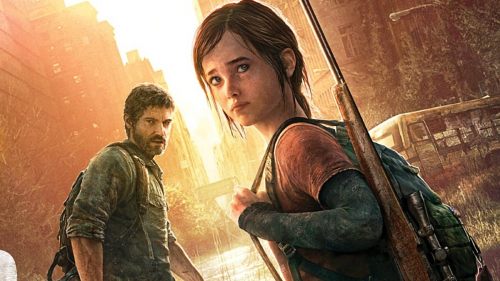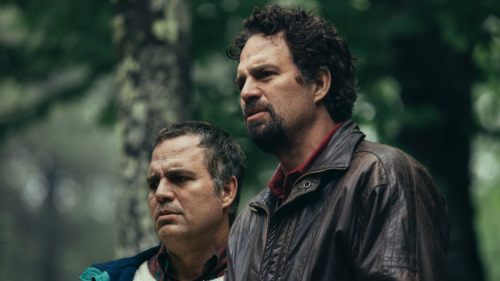The Draw of Character Fallibility in Issa Rae’s INSECURE
Issa Rae’s Insecure balances a remarkable blend of aesthetic and thematic relevance. The soundtrack – a blend of contemporary R&B and hip-hop artists like SZA and Goldlink, curated, composed and arranged by Raphael Saddiq, with consultation from Solange Knowles – pairs well with the stylishly bright, colorful evocation of sunny Los Angeles established by executive producer and multi-episode director Melina Matsoukas. The captivating veneer of the show’s aesthetic is an engaging draw into the show’s funny, up-front depiction of various social and romantic facets of Black urban life.
Between the first two seasons, the range of topics covered by the show has included workplace code-switching, wage imbalance due to race and/or gender, the clash of romantic expectations between men and women, the added complications of cultural and racial factors to those expectations, modern perspectives on infidelity and open relationships, frustrations with the conflation of social media and dating, inter-racial biases, frustrations with white-managed non-profits that attempt to service colored communities, gentrification, and more. Not every plot-line or conflict can be flushed out into complete closure, which is mostly because of the pressure on Insecure to represent the incredibly wide spectrum of Black urban life in America. Even though the recent TV climate has slowly improved in terms of diversity, any show that centers on the lives of people of color is under similar pressures to try and appeal in some way to all the members of the community it represents, which can be especially frustrating when a show wants to hone in on more specific aspects of a given community. However, despite the occasional lapse, Insecure feels neither over-reaching nor unrelatable, because of its focus on well-developed characters whose fallibility is as important as the show’s culturally specific elements.
The show’s first season establishes the triumvirate of Issa, Molly, and Lawrence. Issa is bright, earnest and awkward. She works at a Leimert Park-based non-profit that focuses on at risk youth, We Got Ya’ll, where she struggles at keeping her mostly white co-workers cognizant of their various social priorities while trying not to feel like the organization’s token Black girl. Her best friend, Molly, is a sharply intelligent and sociable lawyer who is at the nexus between a remarkable but similarly tokenized career, sexual freedom, and the stringent expectations she has for potential relationships. And finally, there’s Issa’s boyfriend Lawrence, a software programmer who never developed his app idea beyond the planning stage, and is seemingly unable to motivate himself out of his depression and overdependence on Issa.
Just as Issa’s frustration with Lawrence’s sedentary living reaches a head, she is casually wished a happy birthday on Facebook by her high school friend Daniel, a music producer who had always been Issa’s “what if?” guy. The conflict between Issa’s attraction to Daniel and her loyalty to Lawrence is compounded by increased pressure to become more active in engaging the elementary schoolers she works with. Molly, meanwhile, is consistently disappointed by her inability to forge a strong connection with the men she meets on various dating sites. Yet she also finds herself unable to commit to Jared, a guy she has a genuine connection with, because she still wants to see what’s out there. And at her law firm, a newly hired summer intern, Rasheeda, also a young Black woman, insists on maintaining her slightly informal, colloquial mannerisms and use of AAVE, a dismissal of code-switching that Molly worries will lead to negative reactions from the mostly white law firm. And Lawrence, finally prompted into awareness by a vocally unsatisfied Issa, searches for a career in the tech industry but settles for a job at Best Buy in the interim, while the attractive bank teller he’s acquaintances with, Tasha, tries to get closer to him.
It’s at the point when the beach clean-up that Issa organizes for the kids (even though most of her co-workers doubted her) is successful, and her relationship with Lawrence is the best, that Issa cheats on Lawrence with Daniel. The moment forms an interesting shift in the series, a wave of cathartic sympathy for Lawrence’s character as a kind of archetypal nice guy who was wronged by his girlfriend, instead of the expected vice-versa. Lawrence’s former passivity was a major psychological stressor that ultimately fed into Issa’s frustration and attraction to Daniel. But at the same time, Issa doesn’t do much to deter Daniel’s advances until after they sleep together. The show is good at balancing the two perspectives as opposed to picking sides, encouraging viewers to actively consider the various problems with the relationship, while simultaneously giving room for those predisposed to side with either Lawrence or Issa.
Lawrence doesn’t figure out Issa’s infidelity right away though, which forms an undercurrent of tension as Lawrence finally gets a more fulfilling job and Issa simultaneously organizes a fundraiser for We Got Ya’ll, while also guiltily trying to bury her infidelity. And while Molly’s code-switching storyline ends a little disappointingly – though not ineffectively – with just a shot of her watching briefly from outside the glass as Rasheeda is soundlessly admonished by the firm (it would have been interesting to hear how that conversation played out), her on-again off-again relationship with Jared ends with a surprising portrayal of socialized prejudice. After Jared shares that he had received a blowjob from a man once, Molly’s perspective of Jared’s masculinity is irreparably damaged. Even though he assures her that he is certain about his heterosexuality. Even though she really liked him. It’s a moment that examines expectations of Black masculinity that socially discourages Black men from considering the potential spectrum of their sexuality, while also highlighting a significant, problematic aspect of what Molly expects from men.
At the end of season one, Issa’s fundraiser is a success, and she coldly but successfully convinces Daniel to leave her alone. However, Lawrence finds out about Issa’s cheating, moves out of their shared apartment, and initiates a sexual relationship with Tasha. The emotional damage of Issa and Lawrence’s relationship is the launching pad for Insecure’s more ambitious second season. In addition to the cast’s upgraded appearance and wardrobe, visual markers of the show’s popularity and success, the scope of season two feels larger. Issa’s and Molly’s close friends – the happily married, bougie pretty girl, Tiffany, and the hilariously ribald Kelli – are more active and developed characters, whose presence also gives the cast room to hang out at a greater range of places. And with season one’s solid thematic backbone, season two fleshes out the show’s characters in an increased variety of situations.
Issa’s newfound singleness encourages her to explore her casual dating options and sexual freedom with what Issa refers to as her “hoetation”. At the same time, her developing workplace friendship with her coworker Frieda takes a hit when the Black principal of the new school they partnered with vocally expresses a distaste for the increasing Latino population, even going so far as to turn away Latino students from the program. Issa just tries to focus on the fact that students are showing up, even if it’s only Black kids, but Frieda wants to extend their services to all the kids, and is too bothered by the principal’s bias against the Latino students to let things go. Molly’s own workplace problems begin when she accidentally discovers that a white associate she works with is paid more than her, but the story develops interestingly from gender and racial pay imbalance into Molly taking an active stance in presenting herself to other law firms and considering her workplace options as a lawyer. Molly also begins to see a therapist, albeit irregularly and reluctantly, because of her romance issues in season one. She tries to restructure her perspective on life, even as she finds herself falling into a seductively fun sexual relationship with her married childhood friend Dro, who insists he’s in an open relationship with his wife. Meanwhile, Lawrence finds that his attempts at romantic relationships after Issa are stymied by a lack of trust and emotional stuntedness that are leftover from the fallout of their relationship.
The crossover of different social issues is also more complex in season 2. Lawrence is nerve-wracking stopped by a white police officer in the same episode that he has an uncomfortable threesome with a white and Asian girl who expect him, because he’s a Black man, to be unceasingly libidinous. As Molly’s therapist encourages her to be open to experiences that don’t necessarily mesh with her expectations, she becomes increasingly involved in an open relationship. And in the midst of the increasing crossover, the show for the most part maintains a similar objectivity to the first season, preferring to let the characters’ conflicts play out instead of didactically insisting on what they “should” be doing.
There are exceptions to this. The first is after Issa and Daniel’s reconciliation. Issa gives Daniel a blowjob but becomes furious when he ejaculates in her face. It’s a confusing series of events, not just because of Issa’s reaction, which seems out-of-touch with modern expectations of sexuality, but also because the moment is one of the few when the show seems to be actively siding with Issa for having been forced or injured purposely by Daniel. The scene is framed later as a potential revenge action by Daniel for Issa’s chilly dismissal of their relationship in the first season, which comes across as an artificial way to set up another existing conflict between the characters, especially considering Daniel’s previous adoration of Issa.
On the other hand, the show’s usual commitment to a hands-off approach makes its coverage of toxic masculinity seem incomplete. Lawrence’s charismatic, give-no-fucks friend Chad pokes fun at masculinity in a funny way. But there’s an uncomfortable conversation in season two between Lawrence, Chad, and Tiffany’s husband Derek. Lawrence starts to feel jealous about the friendship between his girlfriend Aparna and a former lover. Chad and Derek argue that Lawrence should not only feel threatened, but that he should actively attempt to end their friendship. The moment is uncomfortable mostly because it isn’t made clear how the show considers their misguided advice. However, Rae has mentioned that toxic masculinity will be a thematic focus in the upcoming third season. It’s possible the show just needed to find the space to further explore the issue. And since Lawrence won’t be returning for season three, there’s now more story space to zero-in on specific social issues as they relate to Black women.
Overall, Insecure is a thoughtful and hilarious depiction of Black life in LA that isn’t afraid to explore its characters’ mistakes. The show’s commitment to dramatizing relatable conflict is its most engaging and entertaining quality, embellished by the remarkably talented Black artists, actors and writers who make the show so fun.



